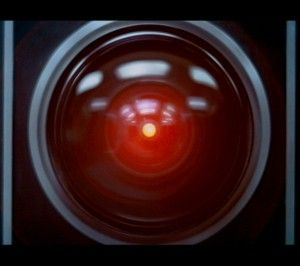LAO: Brown Numbers Don’t Compute
By JOHN SEILER
Gov. Jerry Brown’s budget proposal contains more smoke than a forest fire. More mirrors than a funhouse. And more empty promises than a presidential candidate’s platform.
So much for his solemn pledge, in his Inaugural Address a year ago, “No more smoke and mirrors on the budget. No empty promises.”
The numbers are in the new report by the California Legislative Analyst’s Office, “Overview of the Governor’s Budget.” The budget under the microscope is for fiscal 2012-13, which begins July 1, 2012.
The LAO writes that the governor’s proposed $6.9 billion tax increase, to be put on the November ballot, is the “cornerstone” of the budget. Without it, the budget numbers collapse like a cheap card table. The increase would impose an extra half-cent sales tax, raising the state sales tax to about 8.5 percent in most counties. And it would impose an additional 2 percentage points of income tax on the wealthy, bringing the top state tax rate to 12.3 percent. That would make it the highest in the nation.
Election Far Away
But the tax increase hasn’t even been passed yet by voters. The election to authorize it is more than nine months off. And the last tax increase voters approved was in 2004, at the height of the real-estate bubble. That was Proposition 63, a 1 percentage point tax increase on millionaires dedicated to mental-health programs.
According to Ballotpedia, ‘The “Yes on 63’ campaign spent approximately $4.7 million. The largest donor was the California Council of Community Mental Health Services, which gave $733,389 to the campaign. The California Healthcare Association gave $541,735. The California Teachers Association kicked in another $302,555.[6]
“In comparison, opponents of the measure spent virtually nothing, with two separate ‘No on 63’ campaign committees spending a cumulative total of just over $13,000.00.[7]“
Despite almost no opposition, and the tax falling only on all those filthy rich people, Prop. 63 still got only 54 percent of the vote.
The conditions in 2012 are far different from those in 2004. The real-estate bubble burst in 2007, leading to the real-estate crash. Real estate still hasn’t recovered, and might not for years.
In November 2004, the month of the election, unemployment was just 5.9 percent in California. But in November 2011, the last month available, it was nearly double that, at 11.3 percent.
In 2004, the tax increase initiative sparked just $13,000 in opposition spending. In 2012, anti-tax forces already are planning on spending tens of millions of dollars fighting any tax-increase initiative, whether Brown’s or the others being talked about, such as Molly Munger’s $10 billion yearly tax increase.
I peg the odds of any tax increase passing in California this November at only about 10 percent.
Not Even $6.9 billion
But the LAO also calculates that Brown miscalculated the $6.9 billion in swag. It only would bring in $4.8 billion a year.
Put another way, to get the $6.9 billion Brown wants, the tax increase would have to rise by another $2.1 billion above the $4.8 billion amount, a 44 percent increase. For that the state is supposed to support another tax assault on businesses and jobs?
The LAO’s analysis warned, “Currently, we forecast that the proposal would generate $4.8 billion for the 2012-13 budget process, or $2.1 billion less than the administration’s estimate. Our estimates of the initiative’s revenue increases in later years also are lower than the administration’s. The reasons for our lower estimates are essentially the same as the reasons for our differences in baseline revenues…
“Both our office and the administration agree that the initiative revenues will likely prove to be volatile, given that a large portion of them will relate to upper-income tax filers’ capital gains and other nonwage income.”
“Volatile” is the right word.
Tax Bonanza
Bloomberg reported today, “The potential for California (STOCA1) to see a tax windfall from a Facebook Inc. public stock offering this year demonstrates how much the state relies on capital-gains taxes, a volatile revenue stream that hampers its credit rating.
“Menlo Park, California-based Facebook, the world’s most-used social-networking site, is considering the largest initial public offering for an Internet company on record, a person familiar with the plans said last year. Estimated at $10 billion, the offering would make instant millionaires of company employees and require the state to adjust its revenue forecast to reflect additional capital-gains taxes they’d pay, the state’s legislative analyst said yesterday.
“That kind of unanticipated boost shows the boom-and-bust cycle that capital gains taxes often inflict on California’s budget. In fact, capital-gains tax revenue as a percentage of the state’s general fund plummeted from 12 percent to just 3 percent between 2007 and 2009 as investors pulled away from the stock market, a decline of $9.3 billion, according to state finance department figures.”
This would seem an ideal time to propose switching California to a revenue-neutral, flat tax of the sort Gov. Brown himself advanced when he ran for president 20 years ago. His friend, economist Arthur Laffer, even has devised a great flat-tax reform for California, as I reported on CalWatchDog.com two years ago. So Brown knows what can be done.
But no. Brown refuses to innovate. Instead, he brings out the old root-canal tax proposals favored by the government unions that funded his campaign in 2010.
Meanwhile, the state’s economy, despite a modest recovery, continues to stagnate — barring the occasional Facebook public offering that affects only Silicon Valley.
On Jan. 10, Controller John Chiang released his “Summary of State Finances in December 2011.” It found, “Compared to estimates found in the Governor’s newly proposed 2012-13 Budget, total General Fund Revenues in December 2011 were $165.2 million worse (-2.0%) than expected. Personal income taxes were $69.8 million lower (-1.4%) than projected and corporate taxes were $19.5 million below (-1.4%) the estimates in December.”
Which means there’s no new boom exploding revenue to cover Brown’s budget, which includes $6 billion in new spending. There’s no real-estate bubble. There’s no dot-com boom. There’s just modest growth.
The year will show how much more smoke Brown will blow, and how many mirrors he will erect, to hide what’s really going on and hornswoggle voters into passing his tax increase.
Related Articles
Will Crashing Real Estate Kill Prop. 13?
JUNE 1, 2011 By WAYNE LUSVARDI A demogogue is a leader who obtains power by means of impassioned appeals to
Redevelopment barons plot comeback
JAN. 9, 2012 I’m still giddy after the California Supreme Court ruled last month that the state had every right
Treasurer Chiang talks taxes and the economy
With the rising conversation about extending Proposition 30‘s temporary taxes, I asked state Treasurer John Chiang if he would advise




